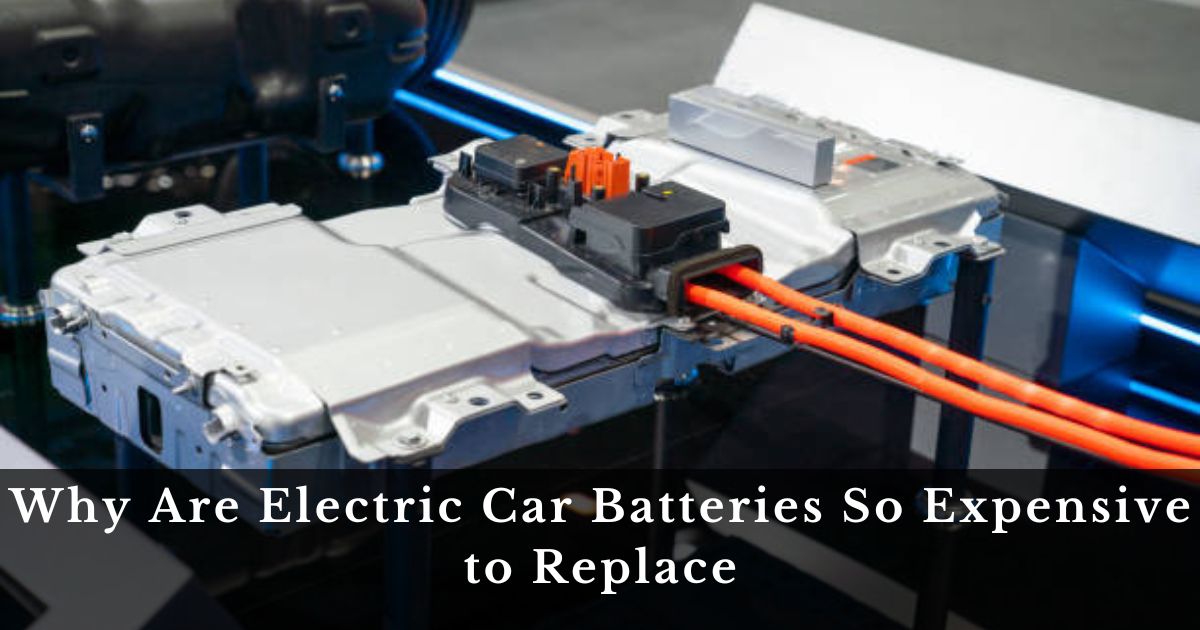Why are electric car batteries so expensive to replace, Electric cars are hailed as the future of transportation due to their eco-friendly nature and potential to reduce reliance on fossil fuels. However, one significant drawback that often concerns consumers is the high cost associated with replacing electric car batteries. But why exactly are electric car batteries so expensive to replace?
Understanding the factors behind the cost of electric car battery replacement is crucial for both current electric vehicle owners and prospective buyers. While the initial purchase price of an electric car may be higher than that of a traditional gasoline-powered vehicle, it’s essential to delve into why replacing its battery can be an expensive endeavor.
Factors Affecting Electric Car Battery Replacement Costs
Several factors contribute to the high cost of electric car battery replacement. Technological advancements, battery chemistry, size, capacity, warranty coverage, and labor costs all play significant roles in determining the price.
Limited Battery Lifespan
Electric car batteries have a limited lifespan due to wear and tear, degradation over time, and the number of charging cycles they can endure before their performance diminishes significantly.
Battery Degradation and Replacement
Understanding Battery Degradation
Over time, electric car batteries undergo degradation, resulting in reduced performance and capacity. Factors such as temperature fluctuations, charging habits, and usage patterns contribute to this degradation.
Frequency of Replacements
While electric car batteries are designed to last for several years, they eventually reach a point where replacement is necessary. The frequency of replacements varies depending on factors like battery chemistry, driving conditions, and maintenance practices.
Cost Implications
The cost of replacing an electric car battery can be substantial, often amounting to thousands of dollars. This expense can deter potential buyers and impact the overall affordability of electric vehicles.
High Research and Development Costs
The research and development required to innovate and improve battery technology come with substantial costs. Ensuring batteries meet safety standards and undergo rigorous testing further adds to the expenses.
Supply Chain Challenges
The complexity of sourcing raw materials, manufacturing batteries, and transporting them to assembly plants contributes to their high cost. Additionally, fluctuations in commodity prices can impact production expenses.
Market Demand and Competition
The growing demand for electric vehicles coupled with limited competition in the battery market can lead to higher prices. Alternative battery technologies are still in the early stages of development, further limiting options for consumers.
Environmental Regulations and Recycling
Disposing of or recycling electric car batteries carries its own set of costs and challenges. Meeting environmental regulations and implementing sustainable recycling practices add to the overall expense.
Future Trends and Solutions
Despite the current high costs, ongoing research and development efforts aim to reduce the price of electric car batteries in the future. Emerging technologies and sustainable practices hold promise for more affordable and environmentally friendly solutions.
While electric car batteries may be expensive to replace at present, understanding the factors driving these costs is essential. As technology continues to evolve and economies of scale are achieved, the price of electric vehicle batteries is expected to decrease, making electric cars even more accessible to the masses.
FAQs
Why are electric car batteries more expensive than traditional ones?
Electric car batteries incorporate advanced technology and materials, which contribute to their higher cost compared to traditional batteries.
Are there any ways to reduce the cost of replacing electric car batteries?
Some manufacturers offer battery leasing options or warranty extensions, which can help mitigate replacement costs for consumers.
How long do electric car batteries typically last before needing replacement?
The lifespan of electric car batteries varies depending on factors such as usage, charging habits, and environmental conditions. Generally, they can last anywhere from 8 to 15 years.
Can I replace my electric car battery with a different type for cost savings?
It’s essential to consult with the vehicle manufacturer or a certified technician before considering alternative battery options, as compatibility and performance can vary.
What should consumers consider when purchasing an electric car regarding battery replacement costs?
Consumers should research warranty coverage, battery longevity, and potential replacement costs before purchasing an electric vehicle to make an informed decision.



